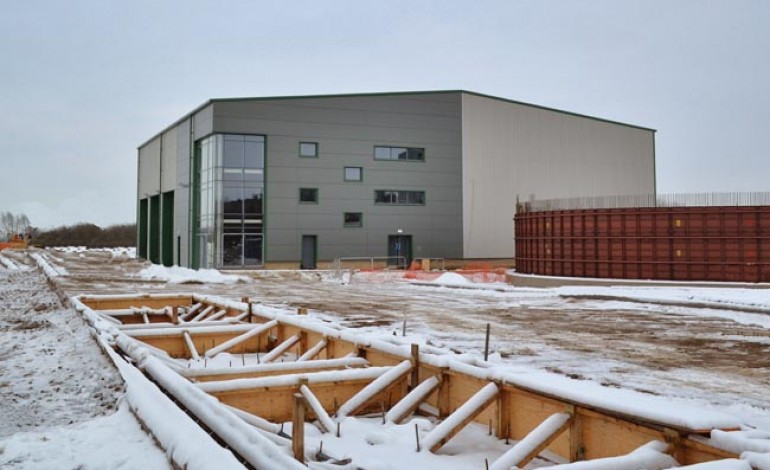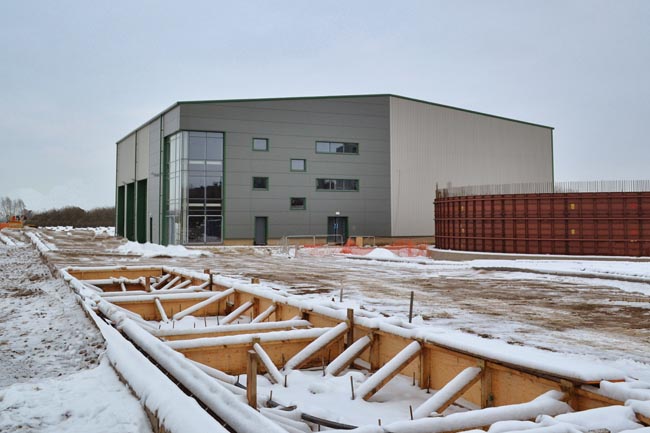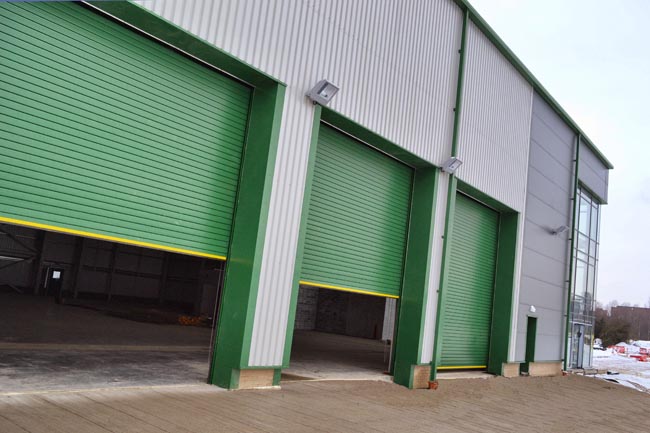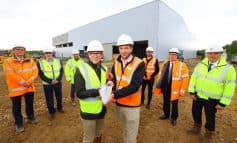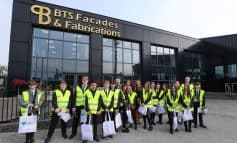A new £8m biogas centre set for Newton Aycliffe is now being built.
The anaerobic digestion (AD) facility, which will help to process food waste from across the North-East and generate renewable energy for the local area, is set to open on Aycliffe Business Park in the coming months.
The Emerald Biogas Centre will become the region’s first commercial food waste facility.
Following the completion of the foundation works, construction of the buildings is now also complete and the installation of the AD process equipment is planned for late January, with commissioning due to start in March.
Emerald Biogas is confident that the facility will start utilising food waste and producing heat and power from May onwards.
Emerald Biogas plans to be fully operational by July, and once at full capacity will generate 1.56 MW of electricity, which in total across the year is enough to power 2,000 homes.
The plant will process 50,000 tonnes of food waste per year and also has the capacity to expand in the future, with planning permission already secured to increase the facility to four times its current size.
Emerald Biogas was formed in 2009 by three partners with a wealth of experience and expertise in agriculture and recycling.
Owners of food waste collection and animal by-product recycling business John Warren ABP, Antony and Adam Warren have joined forces with Ian Bainbridge, who runs the diverse farming, land and resource management business Agricore.
Together their track record in the industry and network of existing clients will help to grow the business and build on their customer base to help achieve their ambitious targets.
Antony Warren, director, Emerald Biogas, said: “This is an exciting time for the team at Emerald Biogas and each day sees a new development on site.
“Once up and running, the facility will be the only one of its kind in the region and capable of not only providing renewable heat and electricity for neighbouring industrial companies, but also producing quality fertiliser from the digestate for use by the local agricultural community.
“We hope the facility will further boost the region’s reputation as a hub for renewable energy, as well as an economic boost for the local area.”
Ian Bainbridge, director, Emerald Biogas, said: “We have invested in the latest AD technology which will result in a better quality product and a more efficient process, and will also enable the facility to expand further and maximise its full potential.
“Merging our expertise and knowledge of the industry and markets to develop this business seemed a natural step forward for all of us and we are very much looking forward to seeing the plant take shape and on to the next stage, operation.”
The AD process removes all traces of plastic, glass and metal packaging from food waste before sterilising the product to meet stringent regulations.
The waste is then transferred to large digestion tanks where water is added so the anaerobic digestion process can take place – a natural biological process within a fully sealed, air free environment.
Millions of bacteria ‘feed’ on the organic fraction of the waste to produce a methane-rich ‘biogas’, which can then be used for heating or to produce electricity.
The excess heat generated during the process will also be used across the industrial estate where the facility will be located.
This was a key factor for the Emerald Biogas team when selecting the location at Aycliffe Industrial Estate.
In addition to the energy generated, the resultant digestate, which is high in nutrients, will be supplied to land owners within a ten-mile radius.
Funding for the project was provided by HSBC, WRAP and the Rural Development Programme for England.
For further information about Emerald Biogas please visit www.emeraldbiogas.com



